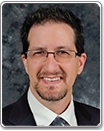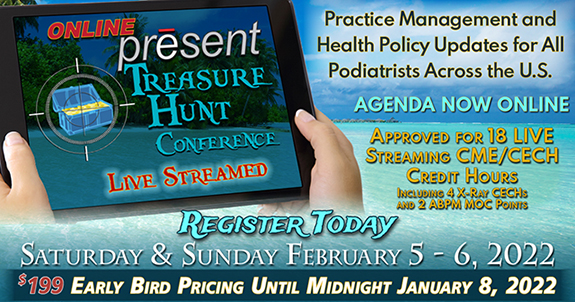
Practice Perfect 791
New Year, New Residency Interviews 2022
New Year, New Residency Interviews 2022

Here’s to a very happy and successful 2022! The excitement of this new year is, for our fourth-year students, colored with a not small tinge of nervousness as this year’s CASPR CRIP interviews are scheduled to begin in just a few short days. Like the last two years, the interviews will be done online.
I’m not a fan of the online interview. I prefer an in-person method because the interaction is much different and more authentic. I’m happy we are able to have any interviews, but the entire experience, both for our residency applicants as well as the programs, is very different.
Over the past several years, we have published advice blogs to help our applicants succeed, and this year is no different. For those interested, the following Practice Perfect editorials have discussed the interview process.
Most Recent Practice Perfect Blogs on the Residency Interview Process
~ Click on Each Title to View ~
To make this process more efficient, I’ve combed through these past editorials and consolidated what I feel are the 10 best pieces of advice for those undergoing this process. Let’s get right to it.
10 Best Pieces of Advice for Doing Your Best in Residency Interviews
- Relax and have a sense of humor about the process. Keep some perspective. It’s one time in your life and will soon be over. Being resilient is a key aspect to overall success, so be sure to show this during your interviews.
- Don’t miss or skip the interview. If you schedule an interview, don’t miss it. Remember, podiatry is a small community, so residency 1 might speak to residency 2 about your skipping their interview, destroying your chance at residency 2. If a technical glitch occurs, work with CRISP and the residency program to reschedule. Then send an email message explaining what occurred and how this will be fixed. Be proactive!
- Clear your visible and virtual space. Make sure the room you’re in is aesthetically pleasing, uncluttered, and organized. Demonstrate how organized a person you are. Don’t cut corners on this one and think if you face your computer screen toward a wall and leave the rest of your room dirty, you’ll be ok. You could easily be asked to pick up your computer and show your room. Close all other running programs, pause your notifications, and silence your cell phone (better yet, turn it off!).
- Position your computer in front of you at the proper height. The camera should be slightly below your eye level and far enough away to see a head and shoulders view. If you’re using a laptop, keep the screen about 90 degrees to the keyboard so as not to create awkward camera angles.
- Body language is key. Look directly at your camera when speaking (yes, this will take practice – it’s awkward). Position your conference software program in the upper middle of the desktop. Maintain good posture (use a comfortable chair). Use visual cues when listening. For example, nodding your head when listening or using appropriate hand gestures when speaking will create a more relaxed and normal feeling appearance. Make it feel conversational and natural.
- Be academically prepared. If you’re not ready by now, don’t bother with this one. It’s too late. But don’t stop familiarizing yourself to keep your mind sharp.
- Act the part. Be the best version of yourself. Residencies are looking for people who are going to be good podiatric physicians. That means you should act like the doctor everyone wants you to be. Don’t be shy. Don’t look scared. Act like someone who has the strength of mind and will to be able to make decisions that will affect another person’s life. Be decisive. Act like that person who is ready to advocate for their patients.
- Have a thought process. You should have a clearly demonstrable thought process during your interviews. If asked to list all the bunionectomies you know, then do it from distal to proximal (rather than jumping all over the place). If you’re asked to work up a diabetic foot infection, ask your questions in an organized fashion. Read your radiographs in a highly consistent manner. You may be asked to explain the why or how of a particular issue. For example, if I asked how does plantar fasciosis occur, you should be able to provide a clear, thoughtful biomechanical answer. If you’ve read recent journal articles about this, then mention it as part of your organized discussion.
- Every question has a purpose. Students are sometimes surprised by the questions their interviewers ask. There’s no need for this if you understand that your interview lasts for a very short time, and those interviewers have a lot to learn about you in that short time. That means every question must have a purpose. Maybe a program asks you to suture while answering questions to see if you can multitask. Maybe it’s to see how well you handle pressure. Questions can be asked not only to test your knowledge but also to see many other aspects of your personality. You may never know if your answer was correct or incorrect, and it may not have mattered if it was. Understand this, and you can simply focus on answering the questions and not overthink your interview.
- Watch out for social questions. These are deceptively simple appearing. Students spend so much time studying the science that they often fail to consider simple questions like “if you were an animal what would you be?” or “what’s the most recent book you read?” What makes these complicated is the virtually infinite number of questions that can be asked. No one can be totally prepared for them. Many are simply a request to talk about yourself, which is something many people don’t like to do. What you say may not be as important as how you say it. This is an opportunity to show your poise, your personality, and generally, what it is like to spend time with you. These questions are also wide open for interpretation, which makes them doubly dangerous. For example, if I asked the question “if you worked in a restaurant, what job would you do?” and you answered, “I’d work in the kitchen,” that could mean you want to work behind the scenes (you’re not a leader) or it could mean you like to cook.
One final piece of advice: after the interview, to make the best impression, send a thank you email. Consider putting your picture on the email. It’s very helpful for programs to quickly recall who you were. Be sure to refer to something specific and positive that occurred during the interview to make it more personal. Good luck with your upcoming interviews and have a very happy New Year!
Best wishes.

Jarrod Shapiro, DPM
PRESENT Practice Perfect Editor
[email protected]































Comments
There are 0 comments for this article